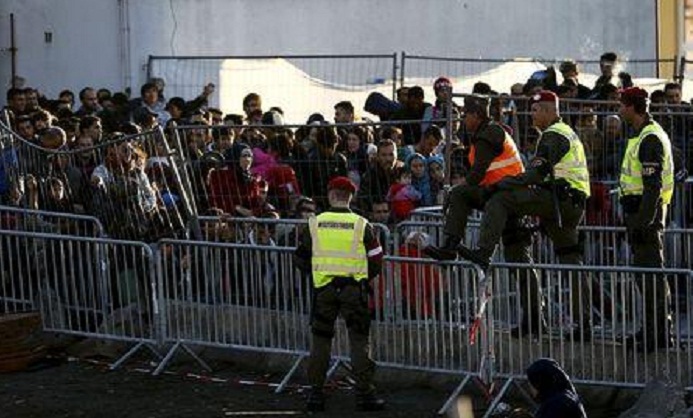Others were stuck in no-man’s land between Macedonia and Greece, where Macedonia has become clearing ground for a possible fence.
What has become the greatest migration of people on the European continent since World War Two has deeply divided the 28-nation EU and fueled anti-immigration sentiment across the continent.
Calls by some right-wing European politicians to stop the influx have been fueled by indications that one of the perpetrators of the Nov. 13 attacks in Paris by Islamist militants, in which 129 people died, reached Europe by infiltrating the chaotic and often unchecked flow of migrants.
UNHCR spokeswoman Melita Sunjic said Serbia had implemented a new approach from late Wednesday: “As of 6 p.m. yesterday evening, Serbia started turning back (to Macedonia) all but Syrians, Iraqis and Afghans."
BALKAN TREK
Those three nationalities make up the majority of the hundreds of thousands of migrants who have trekked across the Balkans this year in the hope of reaching western and northern Europe, mainly Germany and Sweden.
However, Reuters reporters on Serbia’s border with Croatia said others from Iran, Libya and Lebanon were also still crossing.
Migrants arrived by bus at a petrol station near the border Serbian town of Sid, where police checked their papers. A police officer said they had been told not to let those from Algeria, Tunisia, Morocco, Bangladesh, Pakistan or Somalia board trains to Croatia.
Those denied further passage were taken to a nearby camp.
Officials in Macedonia and Serbia said they acted after Slovenia informed them it would no longer grant access to those deemed to be “economic migrants”.
“We won’t allow anyone to enter Serbia who cannot continue their journey,” Serbia’s pointman for the migration crisis, Aleksandar Vulin, told reporters.
“We must protect our country and that is why we have undertaken reciprocal measures towards those for whom Slovenia and Croatia consider there is no place,” he said.
A police spokesman in European Union member Slovenia confirmed Ljubljana would start returning “economic migrants” arriving through neighboring Croatia, saying it could only grant passage to those “from countries where there are armed battles”.
More about:
















































